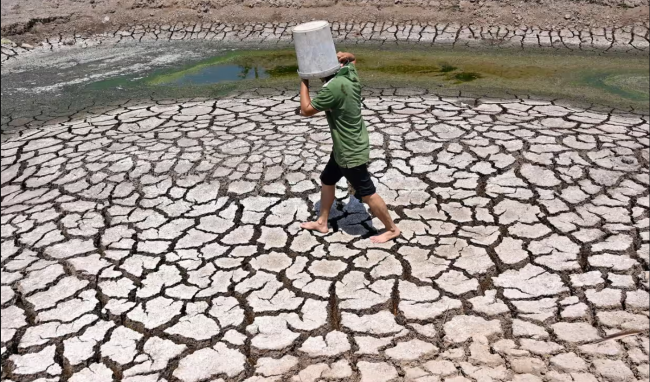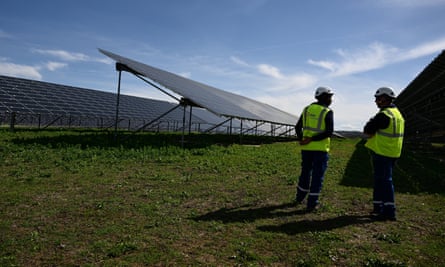Articles Menu

Apr. 17, 2024
Average incomes will fall by almost a fifth within the next 26 years as a result of the climate crisis, according to a study that predicts the costs of damage will be six times higher than the price of limiting global heating to 2C.
Rising temperatures, heavier rainfall and more frequent and intense extreme weather are projected to cause $38tn (£30tn) of destruction each year by mid-century, according to the research, which is the most comprehensive analysis of its type ever undertaken, and whose findings are published in the journal Nature.
The hefty toll – which is far higher than previous estimates – is already locked into the world economy over the coming decades as a result of the enormous emissions that have been pumped into the atmosphere through the burning of gas, oil, coal and trees.
This will inflict crippling losses on almost every country, with a disproportionately severe impact on those least responsible for climate disruption, further worsening inequality.
The paper says the permanent average loss of income worldwide will be 19% by 2049. In the United States and Europe the reduction will be about 11%, while in Africa and south Asia it will be 22%, with some individual countries much higher than this.
“It’s devastating,” said Leonie Wenz, a scientist at the Potsdam Institute for Climate Impact Research and one of the authors of the study. “I am used to my work not having a nice societal outcome, but I was surprised by how big the damages were. The inequality dimension was really shocking.”
The study also looked at the second half of this century, where human actions now can still make a big difference. If business as usual continues, the authors projected average income losses of more than 60% by 2100. But if emissions fall to net zero by mid century, income declines will stabilise by mid century at about 20%.
The economic hit predicted by the paper is more than twice as high as any previous analysis.

Previous projections were optimistic that most northern hemisphere economies would continue to grow. By contrast, the new paper says countries such as Germany (-11%), France (-13%), the US (-11%) and UK (-7%) will lose out even by mid century. Worst affected will be countries in already hot regions including Botswana (-25%), Mali (-25%), Iraq (-30%), Qatar (-31%), Pakistan (-26%) and Brazil (-21%).
Maximilian Kotz, an author of the study, said: “Strong income reductions are projected for the majority of regions, including North America and Europe, with south Asia and Africa being most strongly affected. These are caused by the impact of climate change on various aspects that are relevant for economic growth such as agricultural yields, labour productivity or infrastructure.”
Although the newly painted scenario is far worse than anything that came before, the authors acknowledge it is still conservative and incomplete. There are many major climate impacts that have not yet been incorporated into the analysis, including heatwaves, sea level rise, tropical cyclones, tipping points, and damage to natural ecosystems and human health. The authors said these factors would be added to future models.
“We are providing a more comprehensive picture but this is not the final picture,” Wenz said. “It is likely a lower bound.”
The authors said the study showed the need for stronger adaptation strategies, particularly in poorer, worst-affected countries, to cope with the changes up to 2050 that are already locked into the climate system.
It also found that reducing emissions was far cheaper than doing nothing and accepting more severe impacts. By 2050, it calculated mitigation costs – for example, from phasing out fossils and replacing them with renewable energy – to be $6tn dollars, which is less than a sixth of the median damage costs for that year of $38tn.
Anders Levermann, the head of complexity science at the Potsdam Institute, said: “It is on us to decide: structural change towards a renewable energy system is needed for our security and will save us money. Staying on the path we are currently on will lead to catastrophic consequences. The temperature of the planet can only be stabilised if we stop burning oil, gas and coal.”
[Top photo: A man shields from the sun as he crosses a dried-up pond in Vietnam in March, which was recorded as the hottest month globally on record. Photograph: Nhac Nguyen/AFP/Getty Images]